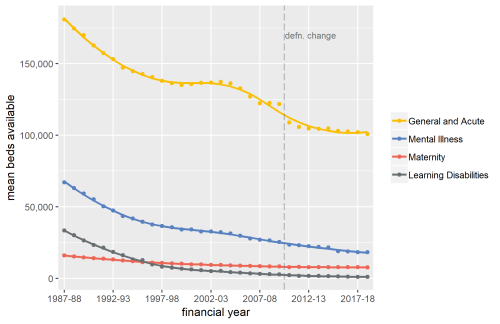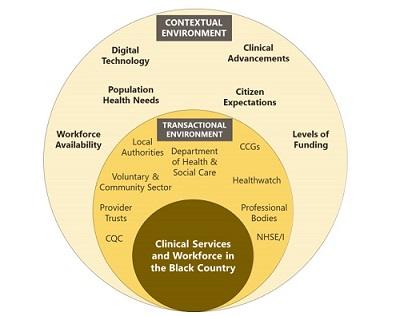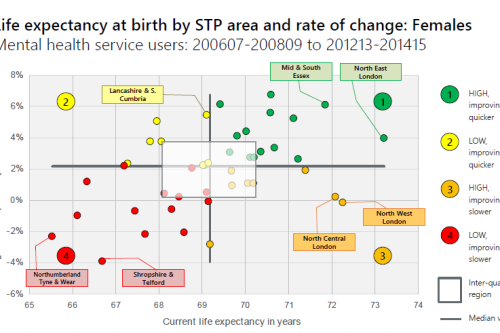Opening the ‘black box’ of scenario planning through realist synthesis
Scenario planning is recognised as an effective aid to strategic planning in complex, uncertain conditions. It is an approach that the Strategy Unit is increasingly building into its work with health and care systems and third sector organisations.
Measuring what matters in systems – A call for person-centred intelligence
The Strategy Unit and Ipsos MORI launch guide to implementing Person-Centred Intelligence.

Exploring Mental Health Inpatient Capacity
This report explores the pressures on inpatient mental health services across Sustainability and Transformation Partnerships in England, drawing on a wide range of datasets, published research and interviews with staff working on mental health services. The report was commissioned by and includes a response from the Royal College of Psychiatrists.
Lessons, Evaluation and Learning from the Dudley MCP
Learning from Dudley MCP

Clinical Workforce Scenarios for the Black Country
The future is highly uncertain.

They don’t believe you
Continuing our mental and physical health guest blog series, Sophie Corlett the Director of External Relations at Mind provides some perspectives from people with physical ailments who are users of mental health services.

Mind and body: inseparable twins
Jennifer Dixon, Chief Executive of the Health Foundation, reflects on the relationship between mental and physical health and the need for better integration of care.

Let’s face the music and (not) dance
David Frith leads our strategy consultancy work with NHS and third sector organisations.

Tools & templates: Problem structuring
Problem trees and driver diagrams can help you to understand the causes and effects of your problem.
The Potential Economic Impact of Virtual Outpatient Appointments in the West Midlands: A scoping study
The Strategy Unit was recently approached to examine the case for a shift from traditional outpatient services to the use of virtual a
Pre-mortem
The pre-mortem technique was developed by Klein (2007) using ‘prospective hindsight’ to identify risks at the outset of a project.

The Status of Electronic Palliative Care Coordination Systems in the West Midlands
Commissioned by NHS England, this report describes the state of electronic palliative care coordination systems in the West Midlands.

Warp and weft – recognising that physical and mental health are interwoven - By Professor Sir Muir Gray
On World Mental Health Day, we’re delighted to present a guest blog by Professor Sir Muir Gray, the first in a new series of commi

Tools & templates: Other points of view
Use Edward deBono’s ‘Six Thinking Hats’ or consider a wider point of view, to approach a problem or potential solution from different perspectives.
Lessons from the Vanguard: Procurement

Tools & templates: Breaking the rules
Generate new ideas to solve a problem – by identifying the underlying assumptions, unwritten rules and thinking that maintain the status quo.

Making the case for integrating physical and mental health services in England - National overview
This is a national overview report of our Making the case for integrating physical and mental health services reporting which took place in July 20
Mental Health and integration: Cinderella or the Ugly Sisters?
Introduction

Tools & Templates: Five Whys
Keep asking ‘why’ to peel back the layers of your problem, until you identify a potential root cause.

Do you like to integrate horizontally or vertically? NHS positions examined
Our latest research paper explores the impact of the different options for integration implemented as a result of the Transforming Community Services policy in 2010. This accompanying commentary reflects on potential implications for the current policy drive towards Integrated Care Systems.